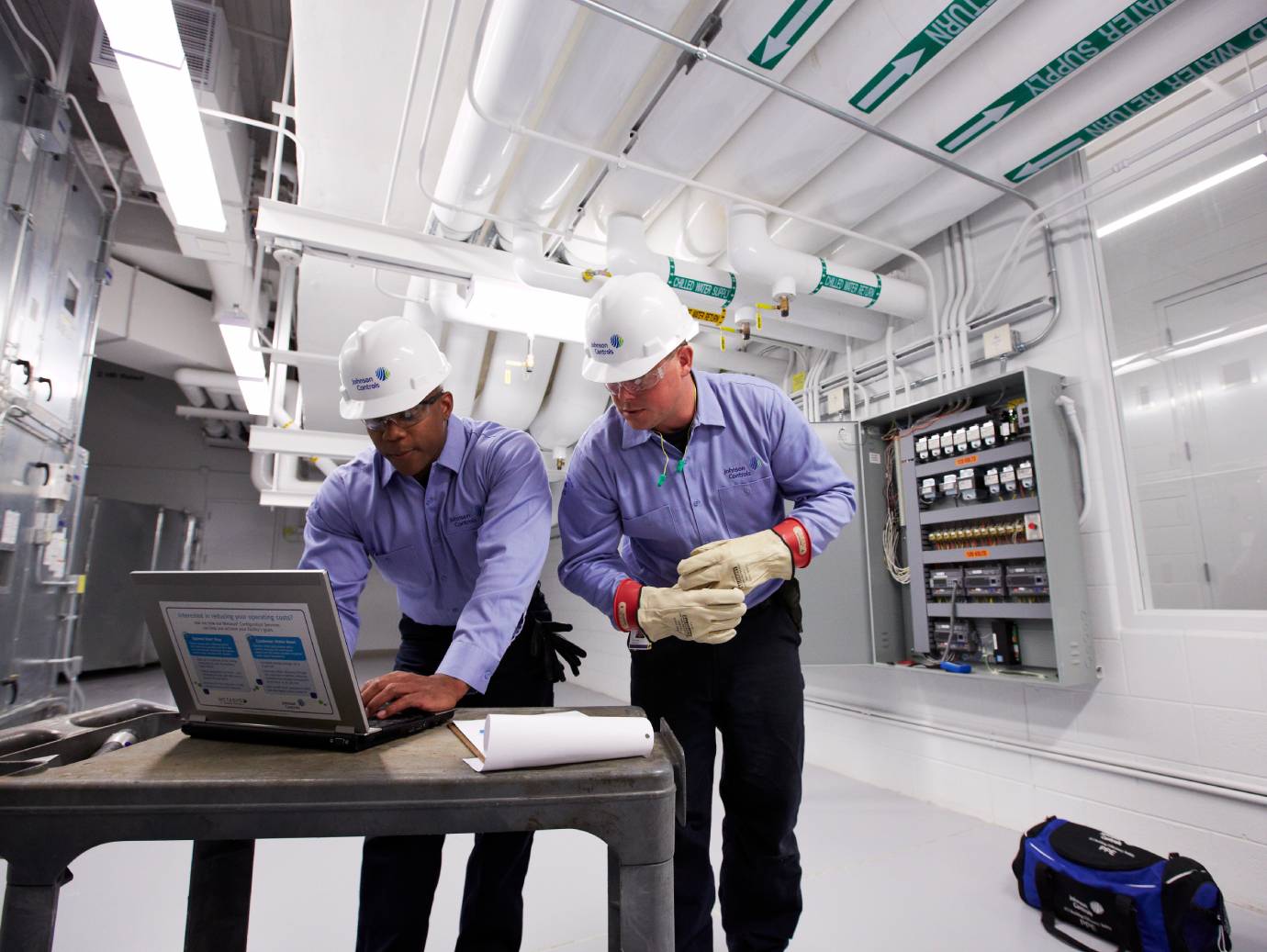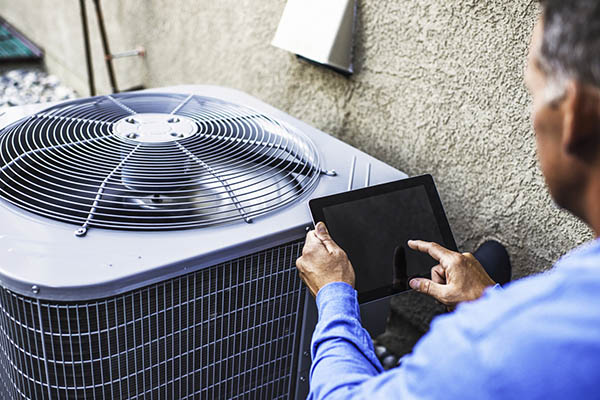Maximize Efficiency from Your heat pump installation ooltewah tn
Maximize Efficiency from Your heat pump installation ooltewah tn
Blog Article
Choosing Between a Warm Pump and Heating System: Key Considerations for Your Heating And Cooling Requirements
When evaluating heating choices for heating and cooling needs, the decision in between a warmth pump and a furnace can be complex. Each system uses unique advantages tailored to specific climates and power efficiency objectives. Understanding these differences is essential for making an informed option. Secret elements such as setup costs and ecological effect additionally complicate the choice process. Which choice really lines up with one's comfort and sustainability preferences? The complying with areas will certainly explore these factors to consider thoroughly.
Comprehending Heat Pumps: How They Function and Their Benefits
While lots of house owners take into consideration various heating alternatives, understanding exactly how heatpump feature and their benefits can considerably affect their choice. Warm pumps run by moving heat instead than generating it. In the winter, they extract warm from the outdoors air or ground and transfer it inside your home, while in the summertime, they reverse this process, cooling down the home by eliminating heat outside. This dual capability makes them flexible for year-round climate control.One of the key benefits of heatpump is their energy effectiveness. They use considerably less electrical energy contrasted to typical heating systems, potentially leading to lower energy bills (heat pump service). In addition, warmth pumps have a smaller carbon footprint, making them an environmentally pleasant selection. They additionally require much less upkeep than traditional systems, contributing to long-term expense savings. Overall, understanding the auto mechanics and benefits of heat pumps can aid home owners make informed decisions regarding their heating and cooling down needs
Exploring Heaters: Types, Operation, and Advantages
Heating systems come in different types, including gas, electric, and oil models, each with unique operational systems. Comprehending these distinctions is vital, as they affect effectiveness and home heating efficiency. In addition, furnaces provide numerous benefits, such as regular heat result and reliability in cooler climates.
Kinds of Furnaces
Furnace can differ considerably in layout and operation, with heating systems being a preferred option amongst property owners. There are several kinds of heating systems, each utilizing various gas sources and innovations. Gas heating systems are typical, leveraging natural gas to produce warmth effectively. Electric heating systems, on the other hand, make use of electric resistance to produce warmth, often preferred for their straightforward installment. Oil furnaces, while much less usual, are efficient in locations with restricted gas access (heat pump service). Additionally, condensing heating systems take full advantage of energy efficiency by recording and recycling exhaust gases. Each kind runs through a system of warm exchangers and ductwork to disperse warm air throughout a home. Comprehending the differences between these heating system kinds is necessary for educated cooling and heating choices
Advantages of Heaters
For home owners seeking dependable heat during cold months, the advantages of heaters are considerable. Heating systems provide constant home heating, making sure also temperatures throughout the home. They are particularly reliable in extreme cold, frequently outperforming heatpump in icy conditions. Numerous types, consisting of gas, electric, and oil heaters, supply versatility to fulfill varied needs and preferences.Furnaces also tend to have lower preliminary installation prices contrasted to warmth pumps, making them an extra available choice for numerous. Their robust style contributes to a longer lifespan, with many devices lasting over 15 years with appropriate maintenance. Additionally, modern-day heating systems are usually equipped with innovative technology for enhanced efficiency, which can cause lowered energy expenses. On the whole, furnaces continue to be a trustworthy choice for efficient home heating.

Energy Effectiveness: Comparing Warm Pumps and Furnaces
When contrasting power performance between heatpump and furnaces, the Seasonal Power Performance Ratio (SEER) plays a vital role in establishing performance. Additionally, a functional price evaluation discloses the long-lasting economic implications of each system. Recognizing these elements can guide property owners in making educated choices about their home heating services.
Seasonal Power Efficiency Proportion
Energy efficiency plays a crucial role in the decision-making process in between warm pumps and heaters, especially when thinking about the Seasonal Power Efficiency Proportion (SEER) This statistics measures the cooling efficiency of heat pumps over a whole air conditioning period, offering a standard means to review efficiency. Greater SEER scores suggest better energy efficiency, equating to reduced energy usage and decreased energy costs. In contrast, heating systems are normally examined making use of the Annual Fuel Application Performance (AFUE) score, which mirrors home heating efficiency. When contrasting these 2 systems, home owners must prioritize SEER ratings for heatpump, as they directly effect general power savings and environmental sustainability. A thorough understanding of SEER can especially influence the long-term contentment and cost-effectiveness of the chosen cooling and heating remedy.
Functional Price Evaluation
Recognizing the functional costs related to heatpump and heating systems is important for house owners reviewing their options. Warm pumps typically use greater power performance, converting electric energy right into warmth with very little waste. This causes reduced month-to-month energy bills, especially in modest climates. Alternatively, standard heaters, particularly gas models, may have reduced in advance costs yet can sustain higher functional costs gradually due to fuel prices and effectiveness ratings.Moreover, warmth pumps can operate as both home heating and cooling down systems, potentially minimizing the demand for different cooling and heating devices. While first financial investments for heatpump might be greater, their long-term savings in power efficiency can make them a more cost-effective selection for several households. Mindful analysis of local energy rates is necessary to determine the ideal choice.
Setup Expenses: What to Anticipate for each and every Furnace
Installment prices for click here for more heating unit can differ considerably between warmth pumps and heating systems, influencing property owners' decisions. Warm pumps generally have greater in advance installment expenses, usually varying from $3,500 to $8,000, depending on the unit size and intricacy of installment. This consists of the outside system, interior handling system, and needed ductwork alterations. On the other hand, heaters tend to have reduced initial her response prices, balancing in between $2,500 and $6,000, which can be appealing for budget-conscious homeowners. However, setup expenditures can enhance if substantial ductwork is required.Moreover, the choice of gas kind for furnaces-- all-natural gas, gas, or electric-- can additionally impact installation costs. While heat pumps provide energy effectiveness, their first investment may deter some buyers. Eventually, examining installation costs along with long-lasting financial savings and effectiveness will help property owners in making notified decisions regarding their furnace.
Environment Factors To Consider: Which System Carries Out Better in Your Area
Just how do environment problems affect the efficiency of furnace? The efficiency of heatpump and furnaces can differ significantly relying on the local environment. In modest environments, heat pumps stand out by successfully moving heat from the outdoors air, making them an energy-saving choice. Their efficiency diminishes in exceptionally cold temperatures, where they might struggle to draw out adequate warm. On the other hand, furnaces, specifically gas designs, provide reliable and consistent warm no matter exterior problems, making them preferable in cooler regions.In areas that experience milder wintertimes, heatpump can run efficiently year-round, supplying both home heating and cooling. In comparison, regions with harsh winters commonly gain from the toughness of furnaces. Ultimately, recognizing the neighborhood environment is essential when making a decision in between a heat pump and a heating system, as it directly impacts their operational effectiveness and general efficiency.
Upkeep Requirements: Long-Term Care for Warmth Pumps vs. Furnaces
While both warm pumps and heaters require normal maintenance to guarantee peak performance, their particular demands and treatment routines differ substantially. Heating systems generally need much less regular focus, with annual examinations sufficing to look for gas leakages, clean filters, and analyze general capability. Their simpler layout usually permits uncomplicated repairs.In comparison, heatpump require biannual maintenance as a result of their double role in cooling and heating. This consists of cleaning coils, inspecting cooling agent levels, and making sure that both the interior and exterior devices function at their finest. Additionally, heatpump maintenance commonly includes even more elaborate elements, making expert maintenance essential.Neglecting upkeep can result in lessened performance and raised energy costs for both systems. Inevitably, home owners ought to think about these long-term treatment requirements when choosing between a warm pump and a heating system, as aggressive upkeep can expand the lifespan and efficiency of either system considerably.
Environmental Effect: Choosing a Lasting Heating Alternative
The ecological effect of heating unit is a critical assessment for home owners seeking lasting options. Warmth pumps are generally much more energy-efficient than conventional furnaces, as they transfer warmth as opposed to produce it, greatly reducing carbon exhausts. By utilizing renewable resource sources, such as geothermal or air-source warm pumps, home owners can further lessen their eco-friendly footprint.On the other hand, all-natural gas heating systems send out greenhouse gases and add to air contamination, though they commonly give greater warm output. Improvements in technology have actually led to the advancement of high-efficiency heaters that lessen emissions.Ultimately, choosing a heating system entails evaluating performance versus environmental effect. Homeowners are encouraged to review regional power sources and incentives for renewable systems, ensuring a choice that lines up with both personal comfort and environmental responsibility. The decision impacts not only immediate convenience however also lasting sustainability and ecological health.
Regularly Asked Questions
How Much Time Do Warm Pumps and Furnaces Generally Last?
The life-span of heat pumps typically varies from 15 to two decades, while furnaces can last in between 15 to thirty years. Normal upkeep significantly affects their durability and effectiveness in offering home heating remedies.
Can I Use a Warm Pump in Extremely Cold Climates?
Warm pumps can run in extremely cool climates, but their effectiveness diminishes as temperature levels decrease. In such conditions, supplementary home heating resources may be essential to keep comfy indoor temperatures and ensure peak performance.

What Is the Sound Degree of Warmth Pumps Versus Furnaces?
The noise degrees of warmth pumps and heaters differ considerably. Normally, warm pumps additional hints operate even more quietly than traditional furnaces, making them preferable for those conscious sound, while heaters might generate louder functional sounds throughout home heating cycles.
Are Warmth Pumps Suitable for Both Heating and Air conditioning?
Warmth pumps are certainly appropriate for both cooling and heating (heat pump service). They operate by transferring heat, supplying efficient temperature control year-round, making them a versatile option for homeowners looking for an all-in-one cooling and heating remedy
What Size Heating System Do I Required for My Home?
Establishing the proper dimension heating unit for a home needs examining factors such as square video footage, insulation top quality, neighborhood environment, and the home's format. Consulting an expert can guarantee an exact analysis and optimal convenience. Heat pumps normally offer higher power performance, converting electric power right into heat with very little waste. In modest climates, warm pumps succeed by efficiently moving warm from the outside air, making them an energy-saving alternative. Alternatively, heating systems, specifically gas models, give trustworthy and constant warm no matter of outdoor conditions, making them more suitable in chillier regions.In locations that experience milder winters months, heat pumps can run properly year-round, providing both heating and cooling. Heat pumps are usually more energy-efficient than conventional heating systems, as they move heat rather than create it, greatly minimizing carbon exhausts. By making use of eco-friendly power resources, such as geothermal or air-source heat pumps, homeowners can further reduce their environmental footprint.On the various other hand, natural gas heaters send out greenhouse gases and add to air contamination, though they often supply greater warm output.
Report this page